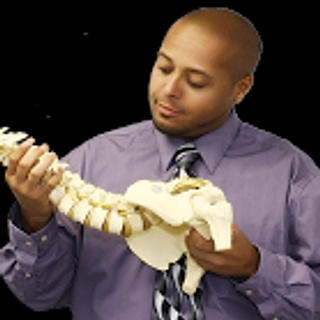Vitamin K
- Seth Lott
- May 2, 2019
- 3 min read
Today I would like to talk/write about vitamin K. A patient made me aware that she was my oldest patient at the age of 72 and made me aware she would have lots of questions for me. The first thing she asked about was vitamin K and why her husband isn't supposed to take or consume anything that has vitamin K. I explained to her that vitamin K is a very important co-factor in the blood clotting and that it will interfere with the blood-thinning medication he must be taking. I also explained to her that vitamin K is not just for blood clotting, but also for helping with bone mineral density and fighting off osteoporosis, cardiovascular disease and used in cancer treatments. I explained to her that although it is not good for him to be given or take vitamin K, it is very important that she maintain her vitamin K intake.
It is also important to note that there are several types of vitamin K, K1, K2, and K3. In addition to those three primary types of vitamin K, vitamin K2 also has several forms.
I have added a couple of illustrations of the organic structures for the primary forms of vitamin K and it should be noted that K3 is a synthesized (man-made) form of vitamin K.
Vitamin K is a fat/lip soluble vitamin which means the body requires fat to absorb the vitamin. It is mainly found in green leafy vegetables as vitamin K is essential and directly involved in photosynthesis. Vitamin K1 is found chiefly in leafy green vegetables such as dandelion greens, spinach, swiss chard and Brassica (cabbage, kale, cauliflower, broccoli, lettuce, and brussels sprouts) and often the absorption is greater when accompanied by fats such as butter or oils; some fruits, such as avocado, kiwifruit, and grapes, are also high in vitamin K. Quick tip the darker the leafy greens the higher the vitamin K concentrations will be. Also, vitamin K concentration is not diminished with the cooking process. Vitamin K daily recommended amounts can easily be met with just a half a cup of chopped broccoli or a large mixed green salad. Do not forget that you also receive some of your vitamin K from the bacteria living within your small and large intestines (i.e. gut bacteria). Bacteria produce vitamin K as a part of their own biological process that goes on within the bacteria for them to continue to survive.
Another reason to continue to maintain healthy vitamin K levels is the help in cardiovascular disease prevention as well as the prevention of osteoporosis. Because vitamin K2 helps with the mineralization of bone by acting on a protein called MGP which is found in bone, cartilage, and soft tissue. However even though this protein is found in soft tissue it does not calcify the soft tissue, the body uniquely knows where calcification should take place. The vitamin K2 and MGP protein are specific to the bone when combining to increase bone density through calcification.
It has also been shown that vitamin K3 appears to kill cancer cells via the mechanism called autoschizic cell death. This is characterized by exaggerated cell membrane damage and progressive loss of intercellular contents. During this process, the nucleus becomes smaller and the cell size decreases. Vitamin K3, when combined with vitamin C, has been shown to have anticancer effects on human ovarian, breast, endometrial and skin cancer cell lines. This does not mean that you can go to CVS and buy vitamin C and vitamin K to dose yourself or a family member to help them. You will end up making yourself or them very sick if you do that.
Always listen to a trained medical professional when it comes to health.
Is it healthy to maintain adequate amounts of vitamin K in your diet? Absolutely the health benefits are outstanding. Can you take too much? Of course, with anything in this world, it is about moderation. Take your vitamins appropriately speak to a health care provider to see what your dietary deficiencies are before you start taking supplements.

For those of you in the Tampa area, our office is conveniently located in Seminole Heights area of Tampa just off I-275 at 205 West Dr. Martin Luther King Jr. Blvd Suite 102 Tampa FL. 33603. The office number is (813) 331-5753 and you may also email questions to doctor@tswchiro.com.
Please feel free to contact the office if there is every anything we can help with.

























Comments